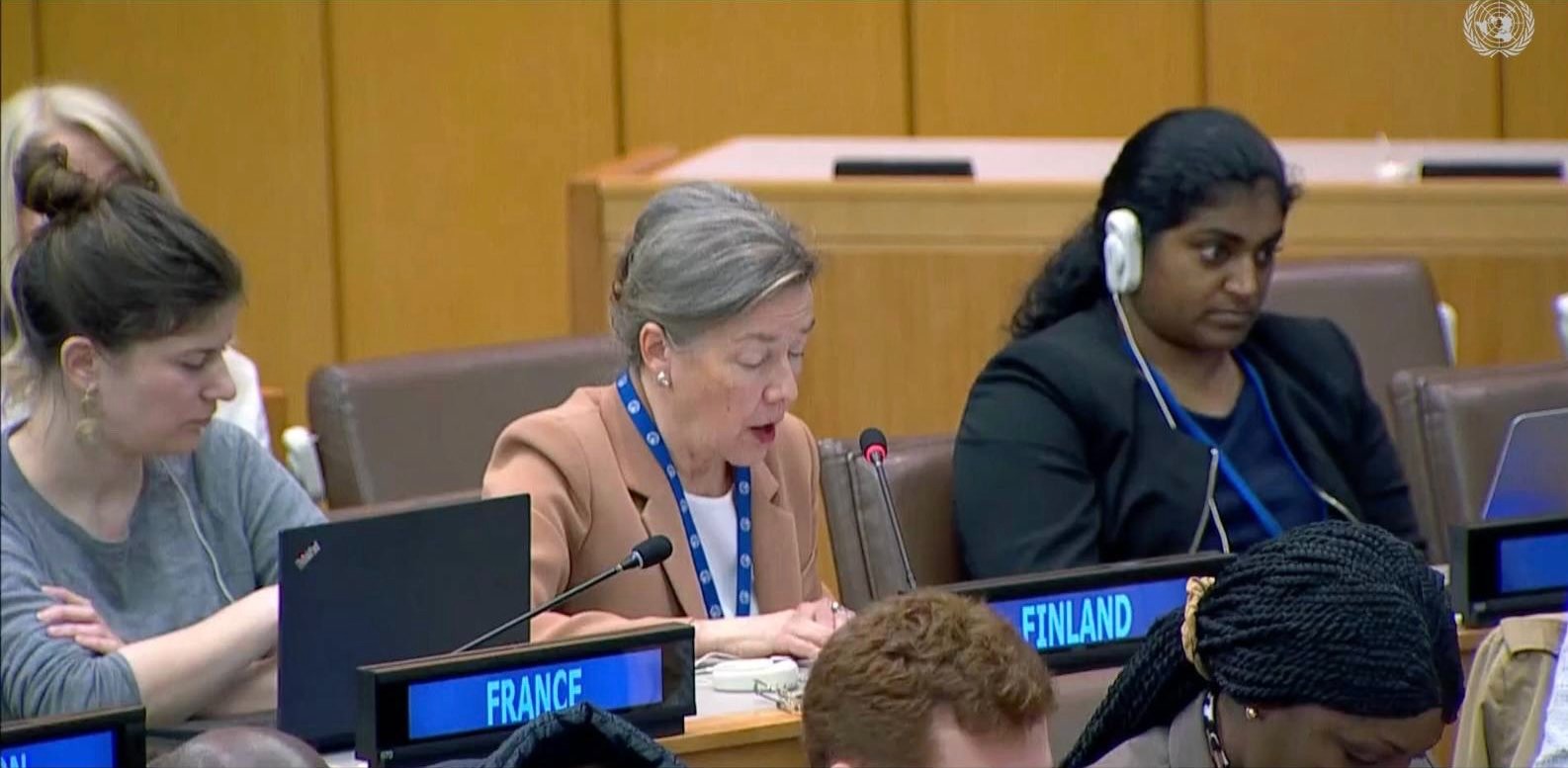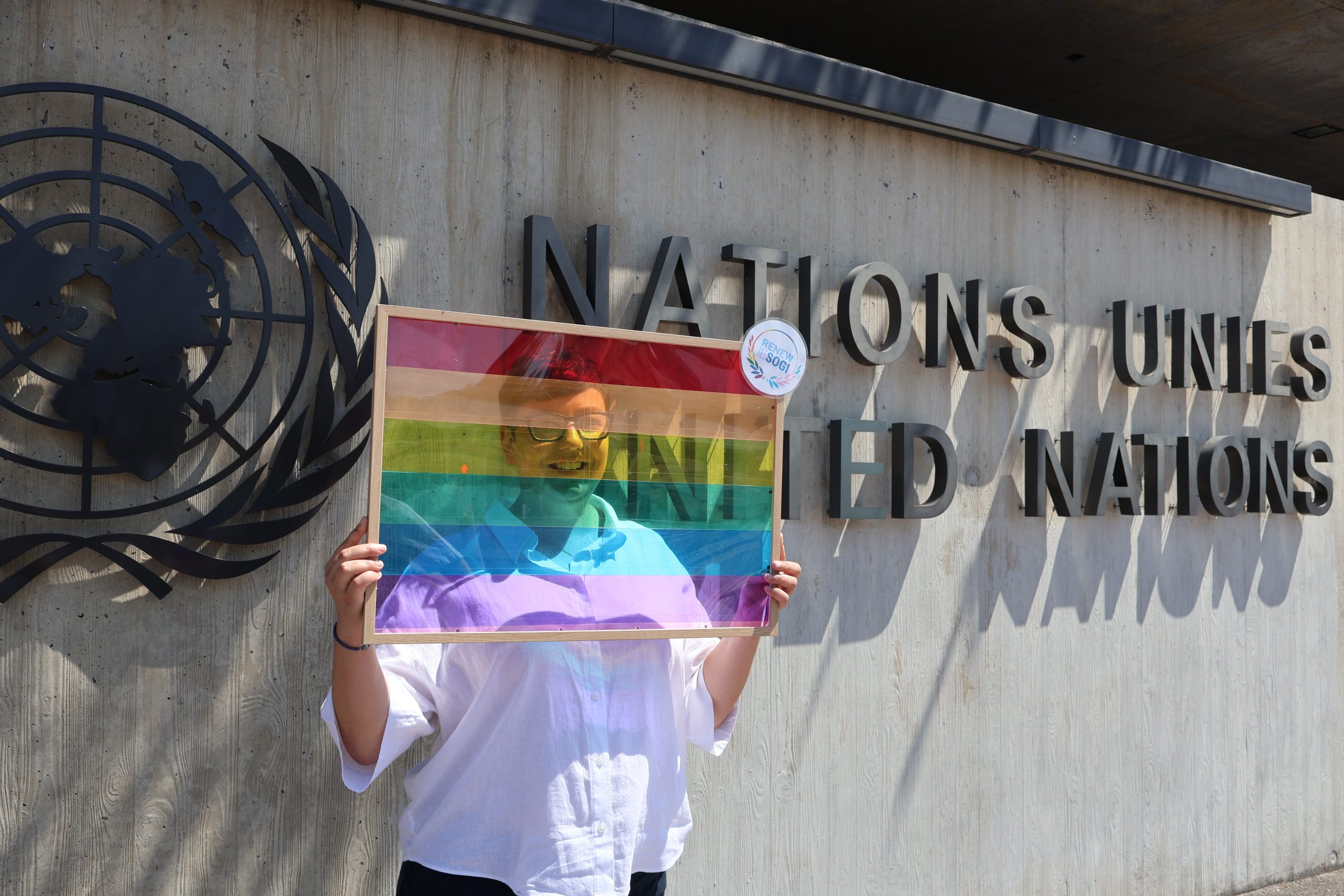The Extrajudicial, Summary or Arbitrary Executions (EJE) resolution is presented every two years and focuses on the protection of all from extrajudicial killings. The resolution calls on States to ensure the effective protection of the right of all to life, liberty, and security, and calls on States to investigate cases of extrajudicial killings and combat impunity.
Critically, the resolution highlights that specific groups are more vulnerable to killings, and calls on States to conduct investigations into killings of members of those groups, including persons belonging to indigenous communities, human rights defenders, lawyers, journalists, demonstrators, as well as killings of persons due to their sexual orientation and gender identity.
‘This year marks the twentieth anniversary of this resolution including a reference to ‘sexual orientation’ and the tenth anniversary of it including a reference to ‘sexual orientation and gender identity’. While a group of States proposed an amendment to remove the reference to ‘sexual orientation and gender identity’, we welcome the strong support shown by many States today to maintain the reference in the text, said ISHR’s Tess McEvoy. ‘This is the baseline of what we expect from all States: to recognise that no one should be extrajudicially killed, including due to their sexual orientation and gender identity’, added McEvoy.
We welcome that this year’s resolution also included strengthened language on the positive role that civil society and human rights defenders play in the protection against arbitrary deprivation of life. As well as language on new, accessible technologies helping to monitor and to prevent persecution and discrimination, and a call to ensure that new technologies are not discriminatory nor used to violate human rights.
The resolution was co-sponsored by 66 States¹, which demonstrates growing, cross-regional support for the resolution, which is the first ever General Assembly resolution to explicitly mention sexual orientation and gender identity, and remains one of only two UNGA resolutions which reference sexual orientation and gender identity. The results of the two votes that took place today² reaffirm – yet again – that everyone should be protected from extrajudicial killings and no one should be particularly targeted for such killings, including on the basis of their sexual orientation and gender identity.
¹Albania, Argentina, Andorra, Armenia, Australia, Austria, Belgium, Bolivia, Bosnia, Bulgaria, Canada, Chile, Costa Rica, Colombia, Côte d’Ivoire, Croatia, Cyprus, Czechia, Denmark, Dominican Republic, Ecuador, Estonia, Finland, France, Georgia, Germany, Greece, Guatemala, Hungary, Iceland, Ireland, Italy, Latvia, Liberia, Liechtenstein, Lithuania, Luxembourg, Malta, Marshall Islands, Mexico, Moldova, Monaco, Montenegro, Netherlands, New Zealand, Norway, Palau, Panama, Paraguay, Peru, Poland, Portugal, Republic of Korea, Romania, Samoa, San Marino, Serbia, Slovakia, Slovenia, Spain, Sweden, Switzerland, Ukraine, United Kingdom of Great Britain and Northern Ireland, United States of America and Uruguay.
²Vote on amendment on para 7b to replace ‘sexual orientation and gender identity’ with ‘sex’: failed with a vote of 88 against, 51 in favour, and 26 abstentions. Vote on the entirety of the Resolution passed with a vote of 131 in favour, 1 against, and 45 abstentions.
Download as PDF




